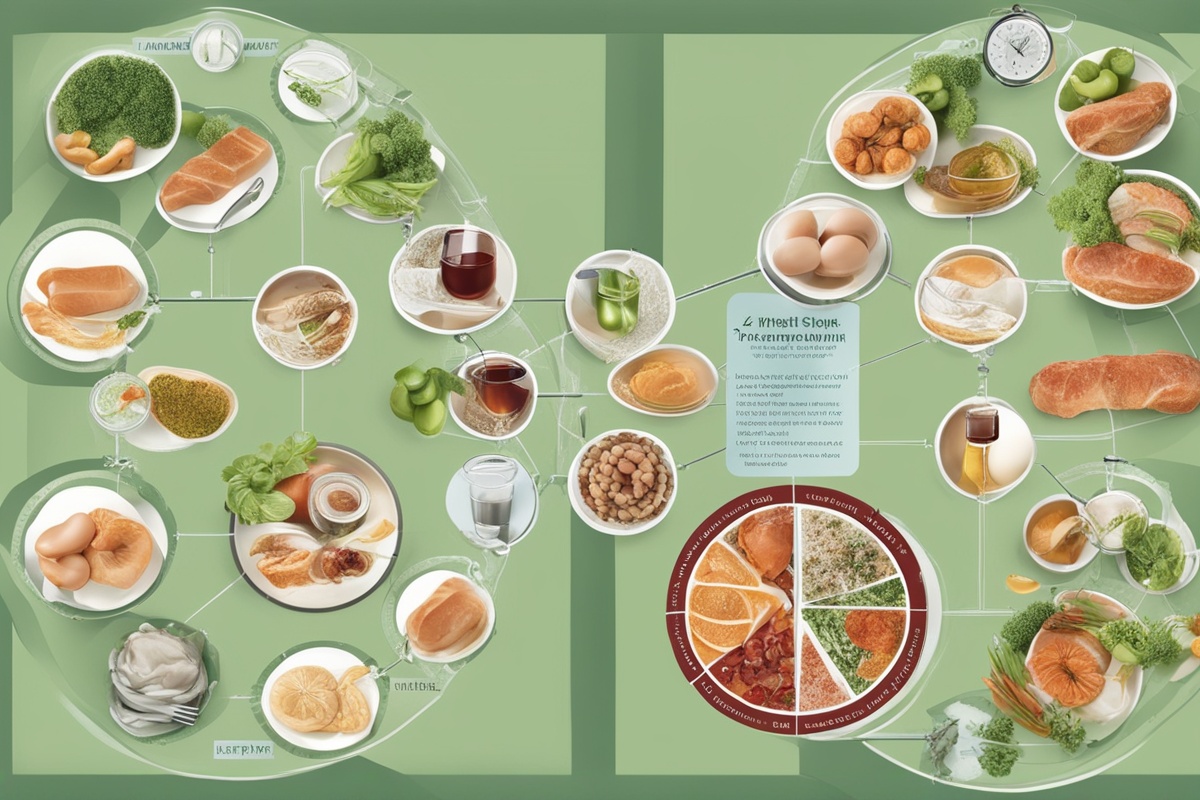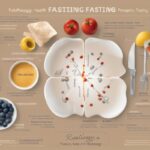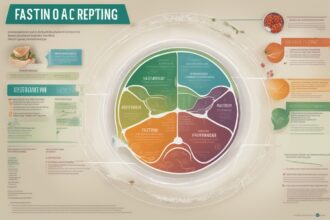Autophagy, the body’s natural process of cellular cleanup and renewal, has gained significant attention in recent years for its potential health benefits. One of the most powerful ways to activate autophagy is through fasting, a practice that not only supports weight management but also promotes cellular renewal. In this post, we’ll explore the concept of cellular renewal fasting benefits, diving into how fasting triggers autophagy and why this process is essential for overall health and longevity.
What Is Cellular Renewal Through Autophagy?
Cellular renewal refers to the body’s ability to repair, recycle, and regenerate damaged or dysfunctional cells. At the heart of this process is autophagy, a mechanism where cells break down and recycle their own components to maintain optimal function. The term “autophagy” literally means “self-eating,” and it plays a critical role in removing toxic proteins, damaged organelles, and pathogens from the body.
When autophagy is activated, it acts like a cellular housekeeping system, clearing out debris and making way for new, healthy components. Fasting, particularly intermittent fasting or prolonged fasting, is one of the most effective ways to stimulate this process. By understanding the link between fasting and cellular renewal, we can better appreciate the profound health benefits that come with this practice.
How Fasting Triggers Autophagy for Cellular Renewal
Fasting creates a state of metabolic stress in the body, which serves as a trigger for autophagy. When you abstain from food for an extended period, your body shifts from using glucose as its primary energy source to burning stored fats through a process called ketosis. This metabolic switch not only conserves energy but also signals cells to start cleaning up and repairing themselves.
Research suggests that autophagy becomes more active after 12–16 hours of fasting, with peak activity often occurring during longer fasts of 24–48 hours. During this time, the body prioritizes survival by recycling damaged cellular components for energy and building blocks. This process is a cornerstone of the cellular renewal fasting benefits, as it helps protect against age-related decline and disease.
For more information on how autophagy works, check out our detailed guide on The Science of Autophagy.
Key Cellular Renewal Fasting Benefits for Health
The benefits of fasting-induced cellular renewal extend far beyond basic cellular cleanup. Here are some of the most significant ways that fasting and autophagy can improve your health:
- Improved Longevity: Autophagy helps remove damaged cells that contribute to aging, potentially extending lifespan by reducing oxidative stress and inflammation.
- Enhanced Immune Function: By clearing out pathogens and dysfunctional immune cells, autophagy strengthens the body’s defense mechanisms.
- Reduced Risk of Chronic Diseases: Cellular renewal through fasting may lower the risk of conditions like diabetes, cancer, and neurodegenerative disorders by preventing the accumulation of harmful proteins and toxins.
- Better Metabolic Health: Fasting promotes insulin sensitivity and fat metabolism, which are crucial for maintaining a healthy weight and preventing metabolic syndrome.
These benefits highlight why fasting is not just a trend but a powerful tool for optimizing health. To learn more about fasting protocols, read our post on Intermittent Fasting for Beginners.
Fasting Protocols to Maximize Cellular Renewal
Not all fasting methods are created equal when it comes to triggering autophagy and reaping cellular renewal fasting benefits. Here are some popular fasting protocols that can help activate this process:
- 16/8 Intermittent Fasting: This involves fasting for 16 hours and eating within an 8-hour window. It’s a sustainable approach for beginners and can stimulate mild autophagy.
- 24-Hour Fasts: A full-day fast once or twice a week can push the body into deeper autophagy, especially after the 16-hour mark.
- Prolonged Fasting (48–72 Hours): Extended fasts are more intense and should be done under supervision, but they are highly effective for cellular renewal.
Regardless of the method, hydration and electrolyte balance are crucial during fasting. Always consult a healthcare provider before starting a fasting regimen, especially for longer durations. For tips on staying hydrated during fasting, see our article on Hydration and Fasting: What You Need to Know.
Potential Risks and Considerations of Fasting for Autophagy
While the cellular renewal fasting benefits are impressive, fasting isn’t suitable for everyone. Certain individuals, such as pregnant women, those with eating disorders, or people with specific medical conditions like diabetes, should avoid fasting or seek medical guidance. Over-fasting or improper fasting can also lead to fatigue, nutrient deficiencies, or muscle loss if not done correctly.
Additionally, the science of autophagy is still evolving, and while studies show promising results, more human trials are needed to fully understand the long-term effects of fasting on cellular renewal. It’s essential to approach fasting with balance and mindfulness, ensuring it complements a healthy lifestyle rather than becoming a source of stress. For a deeper dive into fasting safety, check out our guide on Fasting Safely: Tips and Precautions.
Combining Fasting with Other Lifestyle Factors for Optimal Results
Fasting alone can activate autophagy, but combining it with other healthy habits can amplify the cellular renewal fasting benefits. Regular exercise, for instance, has been shown to enhance autophagy, especially when paired with fasting. Activities like strength training or aerobic exercise can create additional metabolic stress that complements the effects of fasting.
Diet also plays a role. Consuming nutrient-dense foods during eating windows—such as those rich in antioxidants, healthy fats, and plant-based proteins—can support cellular repair. Additionally, adequate sleep and stress management are vital for overall cellular health. For more on integrating fasting with a balanced lifestyle, explore our post on Holistic Health and Fasting.
Disclaimer: The information provided in this article is for educational purposes only and should not be considered medical advice. Fasting and autophagy may not be suitable for everyone, and individual results can vary. Always consult with a qualified healthcare professional before starting any fasting regimen or making significant changes to your diet or lifestyle, especially if you have pre-existing health conditions or are on medication.
References
- Mizushima, N., & Komatsu, M. (2011). Autophagy: Renovation of Cells and Tissues. Cell, 147(4), 728–741.
- de Cabo, R., & Mattson, M. P. (2019). Effects of Intermittent Fasting on Health, Aging, and Disease. New England Journal of Medicine, 381(26), 2541–2551.
- Harvard Health Publishing. (2018). Intermittent Fasting: Surprising Update.
- Levine, B., & Kroemer, G. (2019). Biological Functions of Autophagy Genes: A Disease Perspective. Nature Reviews Molecular Cell Biology, 20(3), 139–151.
- Mayo Clinic. (2020). Intermittent Fasting: What Are the Benefits?
This content is for informational purposes only and not a substitute for professional medical advice.






